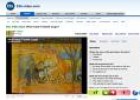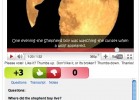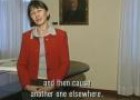Cargando...
Recursos educativos
-
Nivel educativo
-
Competencias
-
Tipología
-
Idioma
-
Tipo de medio
-
Tipo de actividad
-
Destinatarios
-
Tipo de audiencia
-
Creador
Lo más buscado
- Experimentos de ciencias para segundo
- Actividades económicas en segundo
- Planetas interiores
- Imprimir lecturas comprensivas
- Actividades de geometría en sexto
- Repaso de historia
- Guía de alimentación y salud
- Actividades de geografía
- El fin de la Guerra Fría
- Mapa de Europa
- Rinoceronte
- Alimentos transgénicos en segundo
- Conflictos contemporáneos
- propiedades materia
- Palabras agudas, llanas y esdrújulas
-

-

Video: What made Tiddalik laugh?
Esl video Organización
- 3323 visitas
This 6 minute cartoon is a fairy tale about a giant frog, Tiddalik, who drank up all the water in the world. To get it back, the rest of the animals tried to make him laugh. Here we can listen to…
-

Video: The Boy Who Cried Wolf
Esl video Organización
- 3106 visitas
This is the classic tale in which a shepherd pretended there was a wolf to make fun of the villagers and when the wolf really appeared nobody believed him anymore. Subtitles in English help children…
-

How our muscles work
EduBook Organización
- 2328 visitas
How do muscles move? We use muscles to produce movement, force or both things. This happens when our muscles contract (become shorter and thicker). Muscles are attached to bones by tendons. When a…
-

Summaries - Animals
EduBook Organización
- 2311 visitas
1. Vertebrates Vertebrates are the group which contains the human species. They have an internal skeleton, made of bones. The name comes from the vertebrae, which make up the spine (backbone), which…
-

Summary - Understanding the text
EduBook Organización
- 2253 visitas
Complete the sentences below to make a summary of Chapter Six. Choose the correct ending. Huck went to the King’s room because Huck found the money because he Huck didn’t have time to think, so he…
-

From childhood to old age
EduBook Organización
- 2271 visitas
After human beings are born, they grow and develop in different stages. These stages are childhood, puberty and adulthood. Childhood Girls and boys are considered babies until they are one year old.…
-

Reflect. High-speed rail
EduBook Organización
- 2281 visitas
Look at the map and answer the questions: List the railway lines that are currently in service and those that are still under construction. Find the lines that will be finished by 2020. Do you think the…
-

Protecting the environment - The natural environment
EduBook Organización
- 1 lo usan
- 2054 visitas
There are many reasons why we should protect the environment. We should protect the habitat of endangered species, but we should also protect the environment because our future depends on it.…
-

Improving the environment in Europe's cities
EducaMadrid Organización
- 4113 visitas
Four out of five of all Europeans live in towns and cities and the European Commission wants to help make our urban areas better places to live. Which is why it has just launched a Thematic Strategy on…
Te estamos redirigiendo a la ficha del libro...











